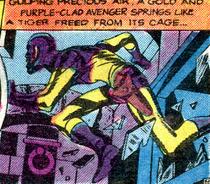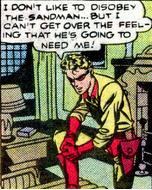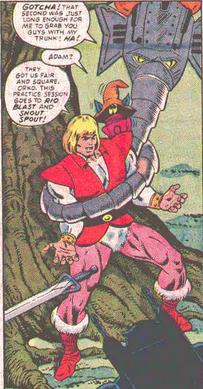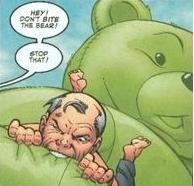Reconsidering Superman Returns (many spoilers)
But I'm not sure I'd consider it sexism so much as a reflection of the central theme of the movie which is, in my opinion, "becoming a man".
Wherein Explanations (And Spoilers) AboundIn a strange sense, Superman was very much a self-absorbed adolescent at the beginning of the movie. He had his set role in everyone's lives, however his long absence changed all that. He is then forced to come to terms with the idea that people can't be taken for granted. They change and move on. Relationships need equal give-and-take as well as actual cultivation in order to last.
He is forced to come to terms with the fact that his quick and ready absence hurt people. It hurt Lois. It allowed Lex Luthor his freedom.
He's forced to recognize that while he's unique, he isn't without rival. There are men as good, brave and heroic as he is out in the world, men who will not make the mistake of taking people for granted. For the first time since Jonathan Kent died, he's got a real external example of manhood to aspire toward.
Lex then becomes the dark mirror of Richard. He's utterly self-absorbed. People and relationships mean nothing except for how they work to achieve his goals. If Superman is guilty of taking his relationships for granted, Lex doesn't really consider them relationships at all. People are ultimately replaceable and interchangeable to him.
Thematically the revisiting of the "real-estate" plot becomes important. Sure, it's a rehash of earlier movie plots, but it becomes important because of the source of that goal...his father.
Each of the three men have paternal shadows influencing them and their development. Richard has followed in the footsteps of his uncle, Perry White. Lex of course is following his father's path. And Superman naturally has Jor-El. (There is also possible symbolism in the fact that Richard's father figure is real, present and obviously flawed and human compared to the distant, rejecting shadow of Lex's father or the dead spectre of Jor-El. Especially when compared to the more human characterizations of Superman in other media when Jonathan Kent is more of an influence on his life.)
I do think that the Superman at the end of the movie is not the distant, alien being that he was at the start. He can't be. He's now irrevocably tied to the people of Earth in a way he could never have been before. He's tied by blood and true, adult responsibility.
Fatherhood is symbolically the point where a boy truly becomes a man. He's faced the harsh truths of adulthood and now finds himself responsible for another life, and while he does quote Jor-El's words back, it definitely looks like he isn't going to be the distant spectre that his own father was. (He has a better example now. Though now the idea of Richard White as Jonathan Kent to Superman's Jor-El is suddenly pretty interesting to me.)
Since the theme of the story is manhood, the roles of women, while significant, important and dynamic in their own right, do take something of a back seat toward the roles of the men. (Though it might be interesting to examine Kitty, Lois and Martha as the three stages of womanhood...), but that's because this is ultimately a movie about being a man.
I think there's a big difference between a movie that is sexist and a movie that's ultimately about what it means to be a man. Which probably sounds weird, but there are countless movies out there about being a woman, movies that are themed around femininity and growing into womanhood. Men play significant roles, but the central themes center around the women. These movies aren't inherently sexist. They're just about feminine experience. Superman Returns is the same, just androcentric instead of gynocentric.
Of course, that said, while I'm okay with ONE Superman movie being hijacked to tell a story about manhood and masculinity, Lois Lane had better kick some serious ass next movie. Or We Will Have Words.
Labels: gender, superman returns





